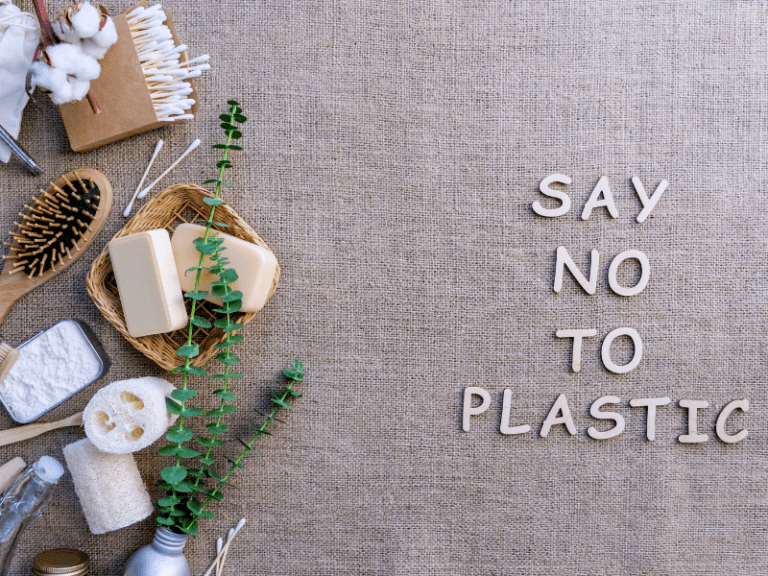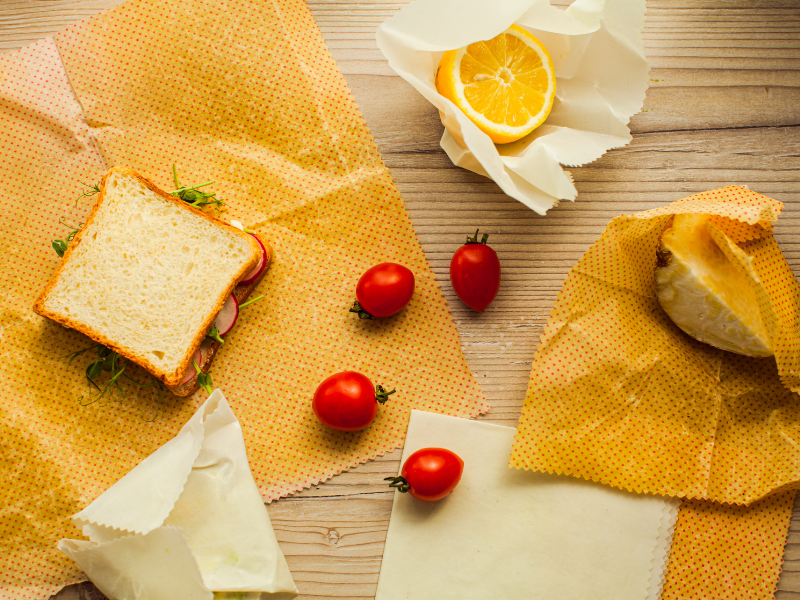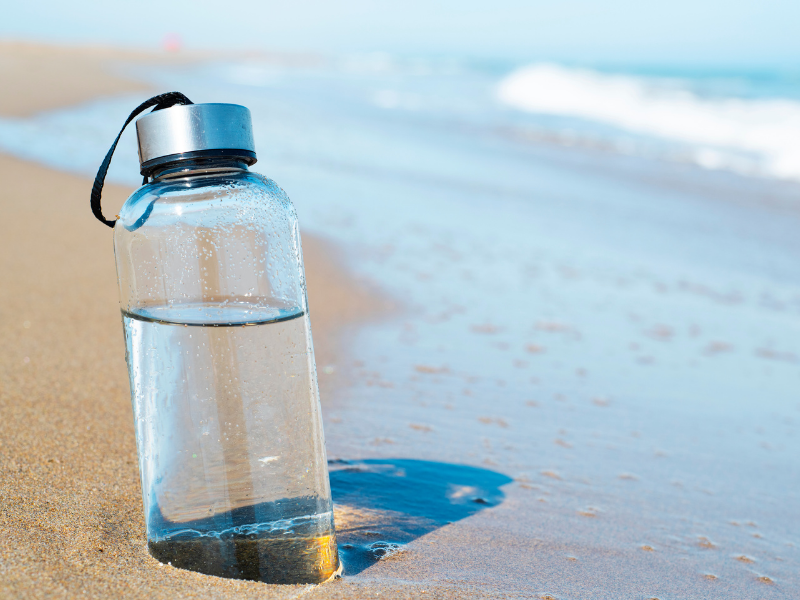Easy eco-friendly substitutes to help your #PlasticFreeJuly

It’s July already and #PlasticFreeJuly has begun!
Plastic pollution is an ongoing critical problem that won’t be solved overnight. However, Plastic Free July is a key initiative, motivating millions of people worldwide to commit to reducing their plastic pollution.
Plastic is used in so many products that it’s easy to feel like giving up even before starting. So, it can be helpful to start with small steps: one product at a time.
To help you with your #PlasticFreeJuly, here is a list of 10 plastic-free choices you can make.
1. Shampoo Bars

The amount of plastic waste generated by products used in the bathroom is surprising. But plastic-free products are becoming more readily available and easier to use.
There are now many online stores that stock shampoo and conditioner bars. Some will be better than others so there may be some trial and error to find the brand that suits you best. Reading reviews from other people can also help.
The bars may take some getting used to as they might not work quite like your usual packaged products.
If shampooing with a bar just doesn’t suit you, the other option is buying shampoo and conditioner from a bulk food store using a reusable bottle.
Also, package-free solid hand soap is an easy way to go plastic-free. They are, of course, available in supermarkets. But lots of fun markets sell local handmade soap so you can support local businesses when you buy from them.
You can also find lovely little tins to store your bars in when travelling. Or just use up some old plastic containers you might have at home already.
Obviously, finish the packaged products you have first, before trying the plastic-free options.
2. Recycled Toilet Paper

No, it’s not actually toilet paper that has been recycled. It’s toilet paper made from recycled paper products like used office paper, cardboard, and textbooks, but also bamboo.
There seem to be an ever-increasing number of Australian-owned companies that make toilet paper and tissues out of 100% recycled paper fibres and out of bamboo. And many donate a percentage of their profits to practical causes for those in need around the world.
The rolls tend to be wrapped in paper, which can be either recycled or saved as wrapping papers for small gifts.
The choice between rolls made from recycled paper or bamboo depends on how soft you need your toilet paper to be. The recycled paper rolls might not feel as silky as the supermarket brands, but the bamboo ones are definitely soft enough.
And carrying a large box of toilet paper into your home sparks a great conversation with neighbours (and delivery men!). It is such a wonderful way to promote something positive—go plastic-free and help those in need.
Lastly, about tissues…old-school is cool, so bring back the handkerchief; easy to wash and reuse, while also saving money.
3. Silicone Lids/ Beeswax Wraps

There is no doubt that cling wrap is a very convenient product, but it is a single-use plastic. Thankfully, there are now lots of plastic-free alternatives such as silicone lids, beeswax wraps, glass jars and food containers.
Silicone lids can fit over all kinds of bowls, plates and containers, even over fruits and vegetables. Unlike beeswax wraps, the lids are usually heat-safe, dishwasher-safe, microwave-safe and they are usually leak-proof.
However, unlike beeswax wraps that are made from organic cotton and beeswax, the silicone lids are not biodegradable, but they are still recyclable.
If you prefer beeswax wraps as a replacement for your plastic wrap, keep in mind they can only be rinsed off in cold water otherwise the wax will melt. So, you probably should not store any raw meat or fish with these wraps. With loving care, you may expect to get up to 12 months use of beeswax wraps.
You could even make your own beeswax wraps. You might want to check it out with the link here.
4. Stainless Steel Straws

Do you also love drinking with a straw but hate the waste of single-use plastics? Stainless-steel straws will be a perfect solution.
Again, these are now readily available in many stores, including many supermarkets. Don’t forget to also get a straw-cleaner to keep your reusable straw clean.
Also available are glass straws, bamboo straws, silicone straws and, of course, paper straws. Paper straws are a good option for when you’re having a party and need more than just a few.
However, most recycling facilities do not accept food-contaminated paper straws for recycling. So please do not throw your paper straws in the recycling bin.
5. Bamboo Toothbrushes

In Australia, over 30 million toothbrushes are used and disposed of by Australians each year, amounting to approximately 1000 tonnes of landfill each year.
Most of these toothbrushes are made of plastic for the handpiece, nylon for the bristles, and they are packaged with a mix of plastic and cardboard. None of these items can break down completely. They may either remain in landfill indefinitely or end up in our oceans.
So, what is the alternative? Well, there are several companies that produce bamboo toothbrushes, which are biodegradable. Google is your friend here. A quick search will result in a large variety of choices. But, you can also now get bamboo toothbrushes from most supermarkets.
Overall, bamboo toothbrushes work just like the typical plastic one. But again, finish using your plastic one before you make the switch.
6. Reusable Coffee Cups
It takes at least 400 years for a coffee cup lid to decompose, if it decomposes at all.
Unfortunately, cafes stopped accepting reusable coffee cups during Covid. But now it’s time to get your keep cups back out of the cupboard and out to your local cafe.
Reusable cups with lids are super convenient when you’re on the go. But while there are so many places to buy yourself a reusable coffee cup, the cheapest option is the coffee mug already sitting in your cupboard. No lid but you can drink your coffee like most Italians do—standing at the bar!
7. Reusable Drinking Bottles

Pictures of plastic drink bottles floating en masse in the ocean are familiar to everyone. So, it should be a no-brainer to ditch the single-use plastic bottle for a reusable one.
There are many fun designs available these days. Surely it must be a fashion statement to carry a cool water bottle rather than a plastic one!
8. Reusable Grocery Bags

Most Australian states have now banned single-use plastic bags, thank goodness. Cloth bags, as an alternative, are super easy and light to carry with you and/or keep them in your car.
But smaller mesh bags for produce is another way to say no to plastic bags. And when people in the supermarket see you put your brussell sprouts in a mesh bag instead of struggling to open the lightweight supermarket ones that always stick together, they’ll be inspired to do the same.
9. Glass Food Storage Containers

Of course, reusing glass jars is the best, cheapest and most convenient way to always have a storage container ready for whenever you need one. But you can also buy glass storage containers in all different shapes and sizes. These are easier to wash compared to the plastic ones, and they don’t stain or retain food colours, tastes, or odours.
Stainless-steel food containers are another option, and have the retro-look, but you might want to check if they are leak-proof.
10. Plant-Based Dish Brushes

Plant-based dish brushes are eco-friendly, and clean just as well as the ugly plastic one you have on your sink.
Always check the product details though. Just because something says it’s “eco” doesn’t mean it is.
Final Thoughts:
➡️ Please note that these are just some tips on how to start to reduce your plastic use. For more ideas check out the Plastic Free July website.
➡️ Please do your own research before you make a purchase. You should be able to find something suitable for your preference and your budget.
➡️ There is no need to throw away all the plastic stuff you have right away if they are still working fine. Once it is useless, just recycle appropriately. For example, you can slowly switch over to plastic-free food containers once your old plastic ones are no longer any good.
Hopefully, these ideas for eco-friendly substitutes will help your #plasticfreejuly.
Sources:
Here’s how the new global treaty on plastic pollution can help solve this crisis. The Conversation. https://glimmerworld.com/heres-how-the-new-global-treaty-on-plastic-pollution-can-help-solve-this-crisis/
How to be sustainable with your coffee habit. https://www.sarahwilson.com/2014/10/how-to-be-sustainable-with-your-coffee-habit/
How to make beeswax cotton food wrap with either an iron or oven. https://www.youtube.com/watch?v=wkRoh1pQoks
Join millions of people reducing their plastic waste. https://www.plasticfreejuly.org
10 eco-friendly substitutes for plastics. https://handsonkeyboard.blog/2019/08/07/10-eco-friendly-substitutes-for-plastics/
The hundreds of choices we make each day impact the environment. https://environmentaltoothbrush.com.au









